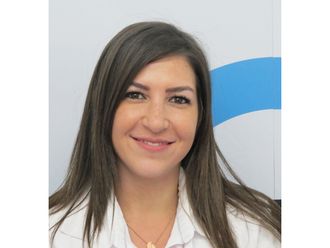
Virtues are innate goodness; they are inbuilt in you. Even if you are not consciously living them, you are never separate from them.
These involve high-vibration emotions such as compassion, kindness, tolerance, purity of intent and include characteristics such as unconditional love, forgiveness, integrity. These are feel-good aspects of truthfulness, trust, humility, generosity, justice, respect etc.
Vices are also innate, surfacing spontaneously in response to certain circumstances or situations. For example, the feeling of arrogance, jealousy, resentment, anger, grudge, critical attitude etc.
Vices are low thought forms that make us feel miserable and heavy in body and in mind. These occupy a lot of energy in our body and thought space.
Unwrapping vices
The more you work on your vices, the more you will know about your virtues. It is like unwrapping a gift. Tear away the vices to get to your virtues. Vices can be likened to a base, a platform, that lift you up to your virtues. Though experiencing vices are important to discover your virtues, however, it is unnecessary to get entangled in them more than required.
To enjoy and live one aspect of life, you have to experience both their sides, that is to say, have a point of reference to understand your relative position in an emotional experience. If you were to be born only with virtues, it would be difficult for you to live in this earthly realm where duality exists.
Why do we have to go through this vice-virtue pattern, you may ask.
Some thought forms, in a way, become the reason and rope through which you connect to your higher side. Therefore, vices are not to be hated but simply dealt with. They serve some purpose and once those are finished, you ought to let them go. Often, we subconsciously hold on to a vice because the mind regards it to be a protective shield.
Vices are not enemies, rather, they are tough teachers. Resentment, for example, is a rough task master. When you release the emotion of resentment, distilling the virtues you learnt from it, you will realise why resentment was important. You will not hate, but thank the emotion for teaching you the virtues you needed to learn. The mistake often one does is to cling on to the negative emotion like an identity and that is when it starts counter-serving. So, learn to release, detach after you have distilled your positive learning from it.
Letting go
The virtue of ‘letting go’, in itself is a lesson. Let’s say, you hold a grudge against your father for being tough on you. Focus on the virtues he’s taught you by being him; it may be discipline; it may be the importance of flexibility or kindness or forgiveness (by him not manifesting these traits).
The question to be asked is: “What did I learn from my father?” Take the lessons and move on without begrudging the person. Thank the person, release him/her energetically, and release yourself. In your learning, that person’s role was instrumental, in absence of which, you wouldn’t have learnt the importance of discipline or flexibility or kindness.
Learn virtues
Any emotional friction that is not letting you go forward is a vice you are holding on to. Meaning, a negative feeling that continues to surface with slightest of trigger. This implies you still have not distilled your knowledge, your lesson, your virtue from that experience yet. Once you do it, you are ready to cast aside the shell and move ahead. This is detaching.
Understand that situations that come to your experience is for a reason. Don’t run away from them; face and overcome them.
So, for example, if you are faced with fear that is not letting you move ahead then ask: what is needed for you to overcome this fear? What thoughts and what actions are required of you. Once you distil this knowledge, you will start getting closer to your life goals.
You can ask:
1. Why is this situation and/or person in my life?
2. What are they teaching me?
3. Have I distilled my learning or am I afraid to face it?
4. Why am I afraid?
5. How will I grow positively if I decide to change?
Disclaimer: Urmila Rao is a chakra balancing meditation coach, Theta Healer and a sound therapist. All the ideas expressed herein are her own and not professional advice or medical prescription. She can be reached at: milarao2018@gmail.com












